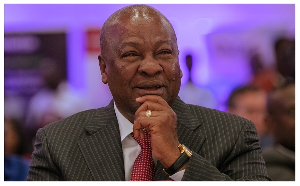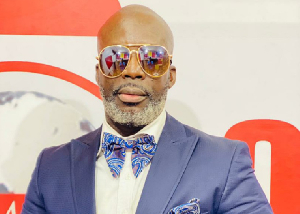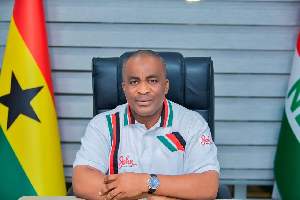Accra, Feb. 16, GNA - The National Commission for Civic Education (NCCE) is to embark on a nationwide education of chiefs on their role under the Constitution, as well as their civic responsibilities in a democratic dispensation.
"Traditional authority needs to be upgraded, transformed and equipped with modern ethics of governance to recognize their territorial authority vis-=E0-vis the central government," Mr Laary Bimi, NCCE Chairman, stated at a meeting with the Apinto Hene of Wassa West District, Nana Kwabena Angu II, in Accra on Tuesday.
The meeting, initiated by the Apinto Hene, discussed a proposal for the introduction of Civic Education among traditional rulers. Mr Bimi said over 80 per cent of the population was indirectly governed by traditional rulers but the Constitution failed to recognize it, explaining that in the rural areas traditional authority superseded that of the State and that this had been the remote cause of some of the conflicts in the country.
Such collaboration, the NCCE Chairman said, would reduce conflicts between traditional rulers, Members of Parliament, District Chief Executives and the Central Government.
While commending Nana Angu for the concept, Mr Bimi urged chiefs to adhere to transparency and accountability, abide by the tenets of rule of law and open governance.
He called for the preservation of the traditional system, "especially values, norms and practices that identify us as Ghanaians." The NCCE Chairman urged traditional rulers to support the initiative, which he said could bring about a reduction in chieftaincy disputes, succession rivalry and other vices that has bedevilled traditional authority in recent years.
He urged chiefs to study the constitution with their elders, as well as other workers at the traditional councils. Mr Bimi advised traditional rulers to desist from practices that fuel chieftaincy and other disputes and instead ensure peace and stability.
Nana Angu explained that the proposal for the introduction of Civic Education among traditional rulers was to ensure that Chiefs, Queen mothers, opinion leaders, as well various leadership groups within the traditional system understand and appreciate democratic rule.
Nana Angu said chiefs must be abreast with modern developmental trend, the fast technological advancement, constitutional democracy and the concept of globalisation.
"This would ensure that we are not left beyond holding on to anachronistic system of governance," he said, adding that "we continue to serve as rallying forces for development through effective collaboration and understanding of modern social economic development."
He expressed concern about the apparent breakdown of discipline in society and urged chiefs to reintroduce some cultural practices that instilled discipline in the community. "Religion has made us discard some of our useful cultural values because we regard them as fetish and ungodly," he held.
Nana Angu, who is also the Chief of Awoduah Traditional Area, observed that indiscipline and lawlessness were the main problems facing the country.
"Our society is becoming increasingly undisciplined and this is seen in the way things are done on the roads, at lorry stations, markets, commercial houses, schools, workplaces and in various institutions," he said.
The Apinto Hene noted that the most disturbing acts of indiscipline and lawlessness were those committed in schools and collages with students vandalising school property on flimsy complaints. He said equally serious were rampant instances of the public meting out instant justice to persons suspected of committing crime. He said such acts of indiscipline and lawlessness had never been part of the country's culture and that things were getting out of hand, giving rise to the "unfortunate impression" that society was now bereft of discipline and the rule of law.
"But the Rule of Law is one of the cornerstones of our constitutional democracy. The rule makes our constitution the supreme law of the land, which all institutions, bodies and individuals are subject to.
"We are not to take the law into our own hands, neither are we permitted to prevent the police in the maintenance of law and order," he added. He expressed the hope that with the introduction of Civic Education among traditional rulers, chiefs would serve as focal points to instil discipline back into the Ghanaian society.
Nana Angu appealed to all traditional rulers to embrace the new concept and collaborate with NCCE field officers for the success of the education programme. 16 Feb. 05
Click to view details



General News of Wednesday, 16 February 2005
Source: GNA
















